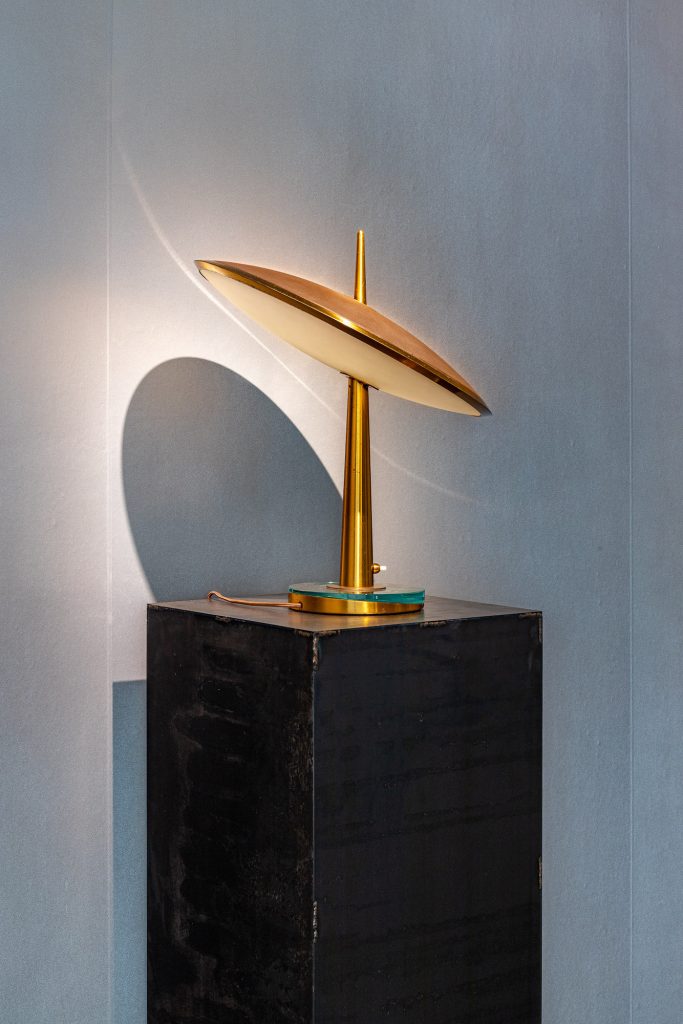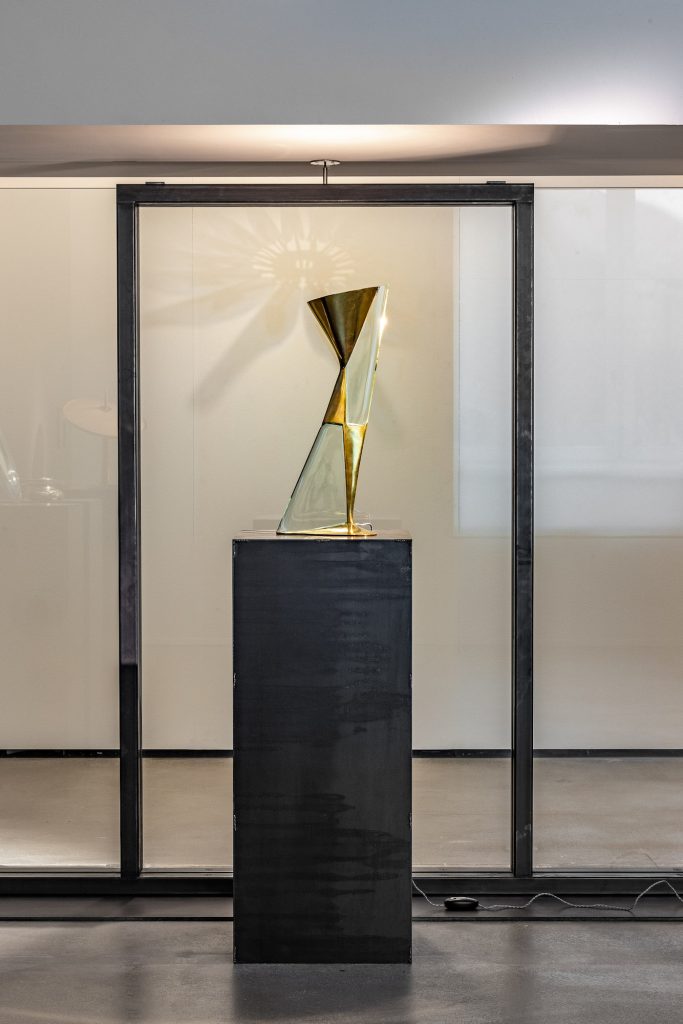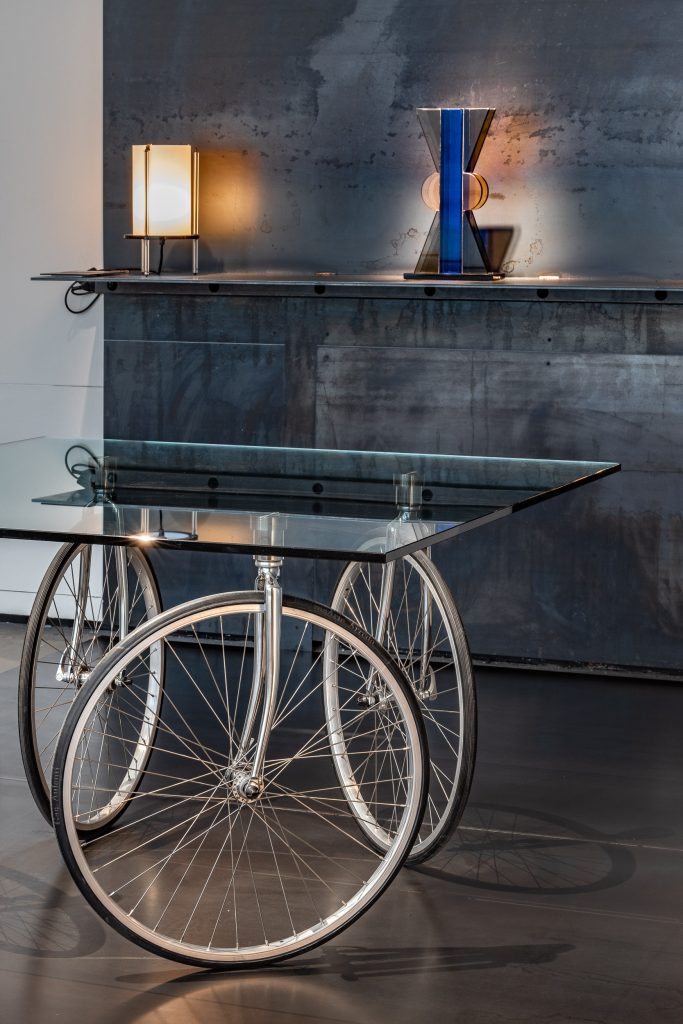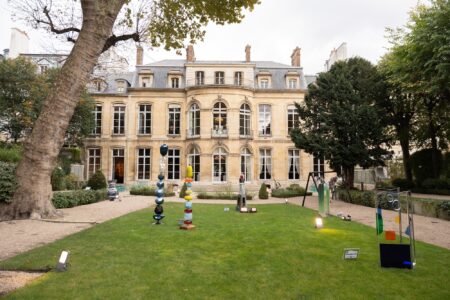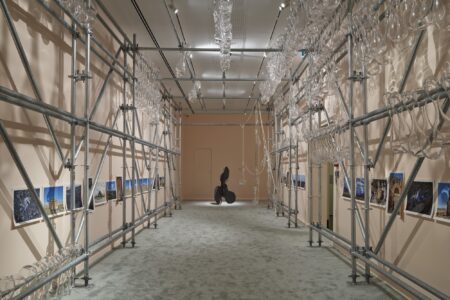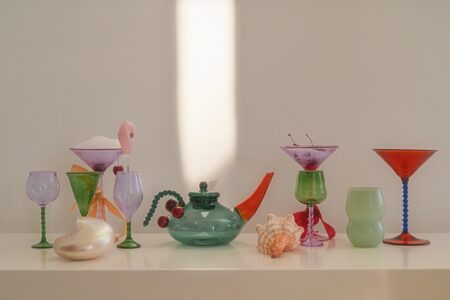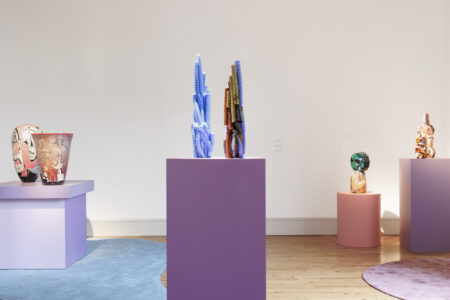FontanaArte: House of Glass
Le Stanze del Vetro presents FontanaArte: House of Glass, a retrospective exhibition curated by Christian Larsen, which examines the contributions of the famous Milanese company in the years between 1932-1996. The exhibition is on view through July 31, 2022.
For Le Stanze del Vetro, New York based curator, Christian Larsen, has organised a comprehensive exhibition around the legendary Milanese glass manufacturer, FontanaArte. Featuring over 85 objects, ranging from large-scale furniture pieces to smaller decorative objects, and focused on the era between 1932-1996, the show is one of the first of its kind that highlights the brand’s particular contribution to Italian design in the 20th century.
Fontana Arte is a household name for many, when it comes to glass, yet it’s also a company that is very hard to define. “From super serialised and mass produced pieces such as fixtures and tables to bespoke and truly singular objects, their products are very diverse, and therefore, difficult to categorize and institutionalise”, says Larsen.
The exhibition keeps to an historic perspective, focusing on four of the company’s Artistic Directors between 1932-1996: Gio Ponti, Pietro Chiesa, Max Ingrand and Gae Aulenti. Through each of their respective tenure’s, the exhibition not only traces the brand’s growth and change during 60+ years, but it is also a reflection of history itself, a reminder of how design subtly adapts to the times in ways we often don’t appreciate until later.
Gio Ponti, who was friendly with Luigi Fontana for many years, saw the potential of taking Fontana’s glass company into a more creative and design-focused product, transforming it into FontanaArte as we know it today. As the Artistic Director for just over a year, Ponti established the brand’s mission of “marrying the industrial with the handicraft, and he was always seen as the grandfather of FontanaArte, watching over it and having a hand in there”, says Larsen. Pietro Chiesa, an artist and glassmaker himself, “really established the artisanal craft quality of the company”, says Larsen. His styles were eclectic and reflective of that transformative period from the 1930s-1940s.
Max Ingrand started in the mid-1950s and adapted the company to the times, shifting into more mass-produced pieces to accommodate the growing demand of the post-war baby boom and middle class. But, as Larsen notes, he was always perfecting his use of glass and lighting, as seen in the Chandelier for the 1958 Brussels fair, which is on view in the exhibition. The piece is so heavy, a special structure was designed to support its weight.
When Gae Aulenti took over in 1979, she helped to revive the brand after it went on some hard times, and brought in a sense of humour, creativity, and a conceptual approach which can be seen in her beloved piece, “Table Tour” (1993).
“FontanaArte’s contribution to making indoor furnishings [in glass] is something that really stands out from other companies of the time. They took this on in a new way and this is their legacy,” says Larsen.
Most of the 85 objects are on view come from private collectors in Europe rather than institutions, a reflection on FontanaArte’s accessibility and diversity, rather than its need to depend on making iconic pieces.
The exhibition design was done by Milanese architect, Massimiliano Locatelli, “who honoured the history and legacy of the company,” states Larsen. While most of the exhibition is laid out chronologically, Larsen and Locatelli also wanted to create a type of ‘house of glass’ at the end of installation, as a way to “drive home the point that FontanaArte’s importance was bringing glass into the home.” Here objects are presented in relation to each other spatially, as they might have been seen or used, while reinforcing Italian design heritage through glass.
FontanaArte: House of Glass is on view through July 31, 2022.
@lestanzedelvetro
www.fontanaarte.com
@fontanaarte


